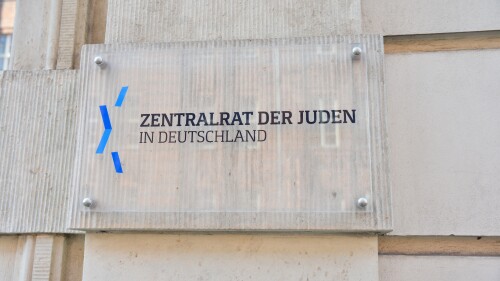The influx of radical Sunni Islamists to Germany since former Chancellor Angela Merkel opened the country’s borders to mass Muslim immigration has compounded the country’s extremist Islamism problem.
In Stuttgart, where no-go zones for Jews are prevalent because of pro-Hamas activism, the city openly allows extremists to hijack the Council of Religions that is supposed to “promote and maintain contact, understanding and dialogue among religions in Stuttgart and with city society, as well as to promote common interests.” Specifically, it has invited the Turkish-Islamic Union for Religious Affairs (Diyanet İşleri Türk-İslam Birliği, DİTİB) to participate.
DİTİB is the “extended arm” of Recep Tayyip Erdoğan, Turkey’s Islamist president. With roughly 900 DİTİB mosques in Germany, out of a total of perhaps 2,500 mosques, the Turkish Islamist movement has penetrated deeply into the Federal Republic’s Muslim community.
The Turkish Islamist movement has penetrated deeply into the Federal Republic’s Muslim community.
After Hamas’s massacre of 1,200 Israelis, Americans, and others on October 7, 2023, DİTİB openly aligned with Hamas. Just weeks ago, Ali Erbaş, the head of the DİTİB, urged a boycott of Israel-linked merchandise, stating, “If a Muslim supports those who back oppressors, if they do not comply with the boycott, if they still bring boycotted products into their homes, they should question their faith.”
Nikos Michailidis, a political anthropologist and Turkey expert, affirmed that DİTİB is an extension of Erdoğan’s rule and explained, “Despite DİTİB’s efforts to project an image of tolerance, intercultural dialogue, and solidarity, it functions as an antisemitic, pro-jihadist, anti-Western Turkish Islamist organization that advances Turkey’s expansionist goals. This undermines the long-term stability and security of Europe.” The problem negatively impacts not only Germany’s already besieged Jewish community, but also the Turkish immigrant community. Michailidis explained, “DİTİB’s ideology and activities impede the integration of Turks and, more broadly, Muslim immigrants into German society.”
Clemens Maier, the Stuttgart politician responsible for security, and Susanne Jakubowski, the Stuttgart Jewish community’s representative on the Council of Religions, did not respond to requests for comment.
Josef Schuster, the president of the Central Council of Jews in Germany, rejects cooperation with DİTİB. It is unclear why Jakubowski and Barbara Traub, the chairwoman of the Jewish community in Württemberg, where Stuttgart is located, ignore Schuster on the issue. Traub has also refused to press Stuttgart Mayor Frank Nopper to delete information about a pro-Hamas group on the municipal website.
Part of the problem is that many German Jewish organizations rely on subsidies from the state of Baden-Württemberg and likely do not want to pick fights with the politicians who control their budgets. This leads to a preposterous situation. The Simon Wiesenthal Center deems Michael Blume, the state’s commissioner to combat antisemitism, to be antisemitic himself. Blume has repeatedly failed to confront Hamas activism and Hezbollah’s in the state. Even the state’s domestic intelligence agency criticized Blume for apparent mainstreaming of a radical Islamist.
What happens in Germany does not stay in Germany. The German government’s tolerance for DİTİB risks normalizing extremism in the heart of the European Union. German states’ leveraging of subsidies to silence Jewish dissent simply allows the problem to further metastasize.
The German government’s tolerance for DİTİB risks normalizing extremism in the heart of the European Union.
In 2018, Germany’s Federal Office for the Protection of the Constitution considered monitoring the DİTİB but backed away from surveillance. This is ironic given how Turkey utilizes the DİTİB itself to conduct surveillance on dissidents, including 19 imams whom Turkey’s government believed supported the late Turkish cleric Fethullah Gülen. DİTİB preachers also whipped up jingoism in sermons calling for worshippers to pray for a Turkish military triumph over the U.S.-allied in Syrian Kurds in Afrin. In 2022, Spiegel also revealed some DİTİB officials “openly sympathize” with the “Grey Wolves,” a Turkish fascist movement that often strays into terrorism.
After the DİTİB invited a Taliban minister to its Cologne-Chorweiler association in the state North Rhine-Westphalia 2023, the state goverment threatened its joint educational project with DİTİB, but never followed through with a cut to its cooperation.
There is a need to end all primary, secondary, and higher education cooperation with the DİTİB. German authorities instead should recognize DİTİB acts as a wing of a foreign regime intent on empowering Hamas and other terrorists in Germany and threatening inter-communal peace. Rather than recognizing DİTİB as part of the solution, it is time to recognize that it is the problem.








